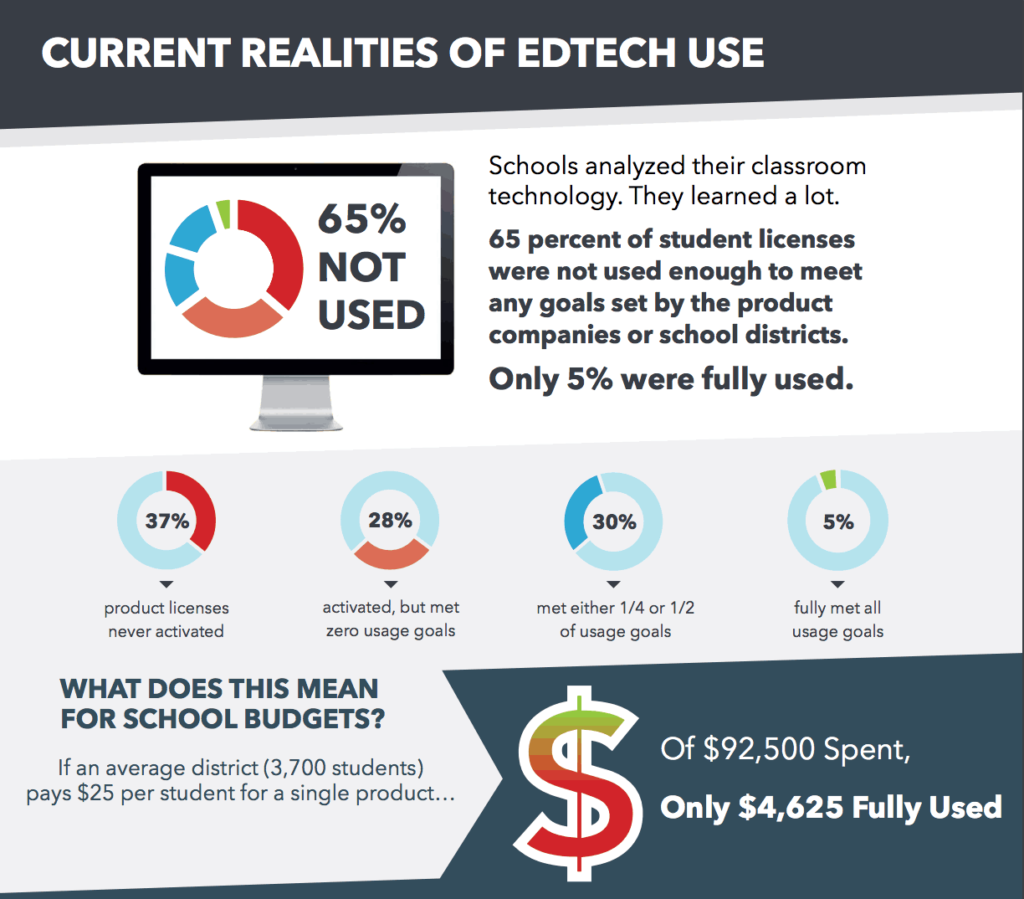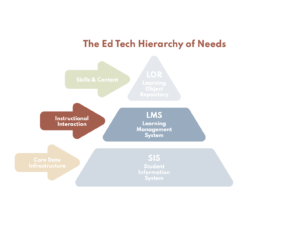Does EdTech Work? It Depends.

Back when most schools used textbooks, it was hard to measure the efficacy of one versus another. Instructional materials have always had less to do with outcomes than instructors.
The shift to digital made everything modular, encouraged mix-and-match use and introduced a lot of free stuff. The number and type of learning and instructional models proliferated. The explosion of mobile devices and applications expanded learning options but added to complexity.
In these early innings of the digital learning revolution, it has become much harder to figure out what works.

To attack this problem, Karl Rectanus founded Lea(R)n two years ago. The team of educators, researchers and technologists has expanded quickly, providing the backbone for schools, districts of all sizes, universities and even states and networks to understand and improve their instruction, budgets and outcomes in this new digital era.
Karl calls Lea(R)n an “edtech management platform.” The software-as-a-service platform uses public data in every school in America, along with utilization, achievement, pricing and other data to help schools figure out what teachers are actually using and what works for students.
Data-driven, peer-reviewed legitimacy is key to the LearnPlatform. Its’ research-based rubric for gathering educator experience allows educators to share insights about digital tools quickly and in context, and has been highlighted at leading data analytics conferences this year.
The resulting insights – now from more than 10,000 educators – provide more context than traditional one-dimensional, often arbitrary star ratings, and can be combined with actual product utilization data and student achievement information, so schools and districts can quickly run their own contextualized analyses on any or all of their digital tools.
Lea(R)n tracks more than 4,000 products with screenshots, descriptions, links to Graphite and EdSurge product reviews, as well as their own differentiated “report cards” from educators. Educators can join for free, create their own product libraries, ask peers questions about tools, share product libraries with parents and participate in pilots. In this short video, math and science teacher Sonja McKay shares how it helps her save time in lesson planning:
Context is key for evaluating what’s working, as is managing bias, which is taken into account in the platform’s underlying analytics, methods, statistical controls and even Lea(R)n’s business model. Rectanus refers to the company’s “commitment to intellectual honesty,” ensuring its platform has no technical or business motivation to bias evaluation outcomes.
While the Lea(R)n implementation team – made up of former edtech directors – works closely with districts to ensure rapid set up for districts, the team also offers an a la carte service — in less than 100 days, Lea(R)n’s Rapid EdTech Analysis can help a school, district or network figure out what products have been purchased and are being used, what’s working and how pricing compares.
For more see:
- Helping Teachers and Schools Run Experiments
- Searching for Efficacy in Implementation on the EdTech Expo Floor
- On Promoting Efficacy: A Conversation with John Tweeddale
- 3 Questions to Innovate with Impact
Stay in-the-know with all things EdTech and innovations in learning by signing up to receive the weekly Smart Update.







0 Comments
Leave a Comment
Your email address will not be published. All fields are required.